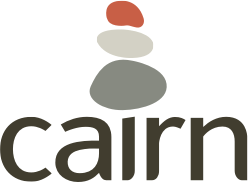I’m responding to an article written in Strategies: A Journal for Physical and Sport Educators, in the January/February issue called, It’s Time to Include Nutrition Education in the Secondary Physical Education Curriculum.
The authors did a good job of ‘making the case’ to increase both physical activity and nutrition education in schools. We have a childhood obesity problem and schools do play a role in awareness, education and prevention of this issue. The authors advocate for PE teachers to include a 17-week nutrition program within their PE class. Now, I see that suggestion as a two-fold problem. First, I’m not a PE teacher, but I assume that PE courses in high school do not have a ton of time leftover if addressing and aligning their program to the National PE Content Standards. Secondly, although incredibly supportive of more nutrition education and integrated learning, the article wasn’t written or apparently reviewed by a health educator. I’m concerned the authors, Susan L Bertelsen and Ben Thompson, associate professors in the Human Performance and Sport Department at Metropolitan State University of Denver in CO, did not work with a health educator. And, here’s how I know this. They don’t mention the importance of alignment to the the National Health Education Content Standards. They don’t talk about the Health Education Curriculum Analysis Tool and developing a sequential health education program integrated to what their health teachers are teaching and aligned to the Healthy Behavior Outcomes (HBOs) within the HECAT. What they have in the article as a suggested ‘curriculum’ (which it’s not by definition a curriculum, but rather a scope and sequence, or list of topics), is not all function knowledge. I recently blogged about functional knowledge. It means- what are the concepts students REALLY need to know to change their behavior or intend to stay healthy? What the authors have listed there isn’t all functional knowledge. The authors also state nothing about reviewing your local or state Youth Risk Behavior Survey Data… using data to drive curricular decisions. Instead they just suggest nutrition topics that don’t necessarily lead to behavior outcomes.
I hate to pick on these two authors. I mean- I get at the core of what they are saying is that we need more nutrition ed (amen!) and integrated learning (amen!). But, next time, please advocate for strong implementation of ideas using what we know is best practice in health education.

Leave a Reply